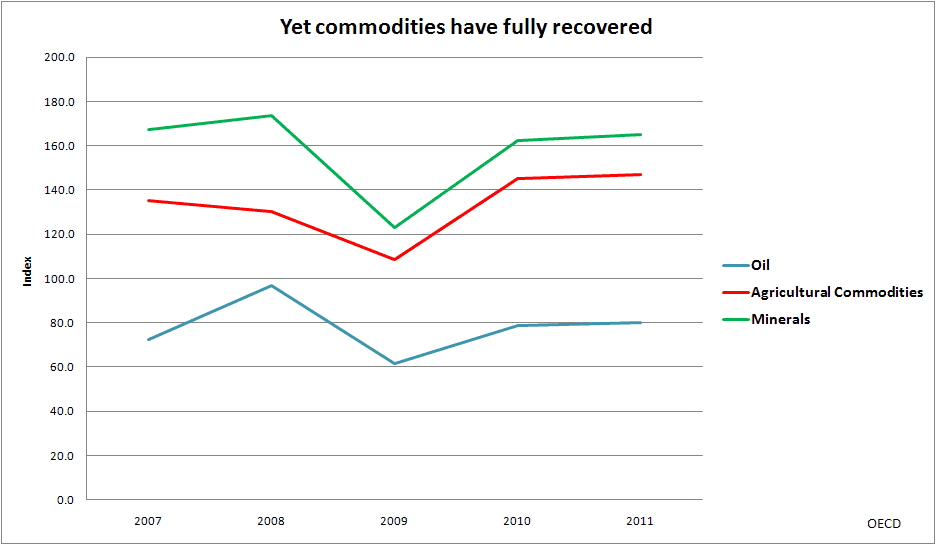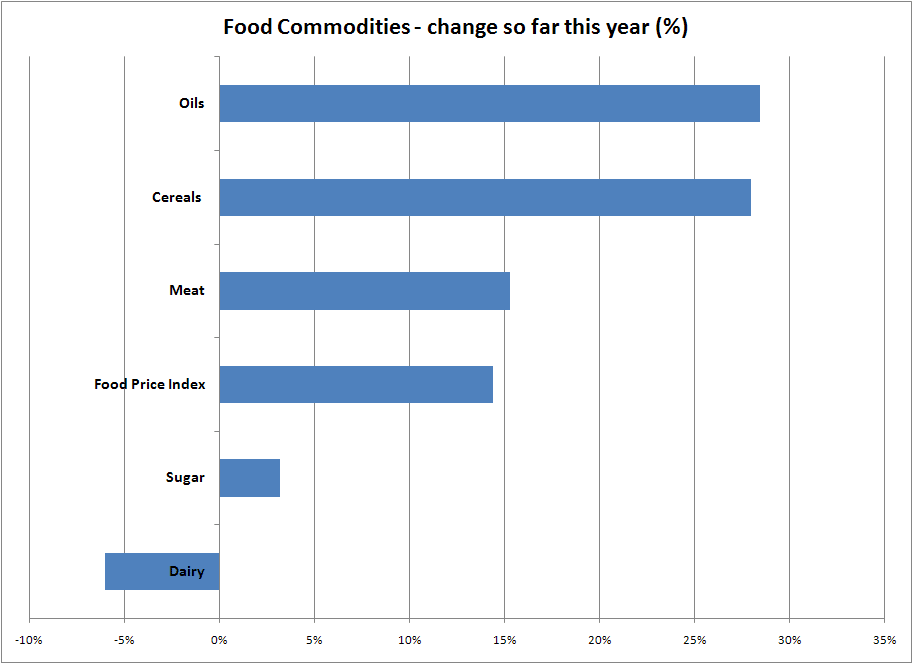The uneven recovery
COMMODITIES RUN WHILE ECONOMY WALKS
the global financial crisis was not discriminative, all markets were hit. However the economic recovery has been much more uneven. Luckily for producers, it was the commodity markets which were the first to recover. Indeed most commodities, including grains and oilseeds, are now trading above their pre-crash levels. Meanwhile stocks, real estate and most critically, employment levels continue to lag, prompting many to dub this a “jobless recovery.” The Federal Government is right when it describes Canada’s recovery as being “a mile wide but an inch deep.”


Around the globe, government stimulus spending helped prevent economies from falling further into the abyss. However, the pain may have simply been delayed with many economists now considering government debt a potential time-bomb.
There is some concern that should commodities continue to rally, the
fragile recovery in the broader economy might be crippled. Similarly, those in commodity markets are also mindful that a double-dip recession will reduce demand for raw resources.
Qe will keep the loonie flying high
As is so often the case, Canadian growers are enjoying high grain prices while lamenting an unfavorable exchange rate. This time around, the Loonie is also being buffeted by the US Federal Reserve’s program of Quantitative Easing (QE) which involves printing money to pay off debt. As a result the Canadian Dollar should remain above or near parity in 2011. At present the US government plans to print around $100 million each month until June 2011. Although criticized by some economists, this quantitative easing policy is reasonably popular within the US, as it helps to keep interest rates low, exports competitive and also avoid any deflation concerns.
food prices rise
With commodities, particularly crude oil, rallying ahead of the rest of the economy, food price inflation is becoming a political issue while the related food versus fuel debate has also resurfaced.
In the past decade the world has become much more sensitive to food security issues. Urbanization has increased many countries’ reliance on food imports, while increased speculation in commodity markets has created more price volatility.
The Chinese government is particularly sensitive to food price inflation, as it is a potential trigger for political unrest. Overall inflation in China is running at 4.4 percent while food prices went up by more than 10 percent in the month of October alone. This was a staggering increase considering Chinese farmers had enjoyed a reasonably good season. By the time this goes to print, the Chinese government will have most likely taken action to prevent further food price hikes. However, it is unlikely to reduce the country’s demand for food imports, indeed restraining prices should lead to increased consumption.
This time around the general public appears more able to distinguish reality from myth in the food versus fuel debate. Crude oil prices, rather than ethanol/biodiesel demand remain by far the largest determinant of retail food prices. This point became clear in 2008 when commodity prices fell dramatically while ethanol production continued to rise. It is also true that depressed grain prices are harmful to poorer countries whose economies are more reliant on agricultural production.
By the end of 2010, the US Government will have decided whether to continue to provide subsidies for ethanol production. Following the US mid-term elections the now “lame duck” US congress will be mindful of the need to cut government spending in line with voter sentiment. However, cutting subsidies to the ethanol industry would go against the government’s top priority of job creation.

legitimate CAUSES
The uneven global economic recovery is of concern to some; however, it is unlikely to derail the broader economy. The recent rally in grain commodities was triggered by mostly legitimate causes, namely the drought in Russia, disappointing US yields and continued demand growth from China. While the broader economy remains stagnant, higher food prices will be a political concern, however as always the market will correct itself. •
























